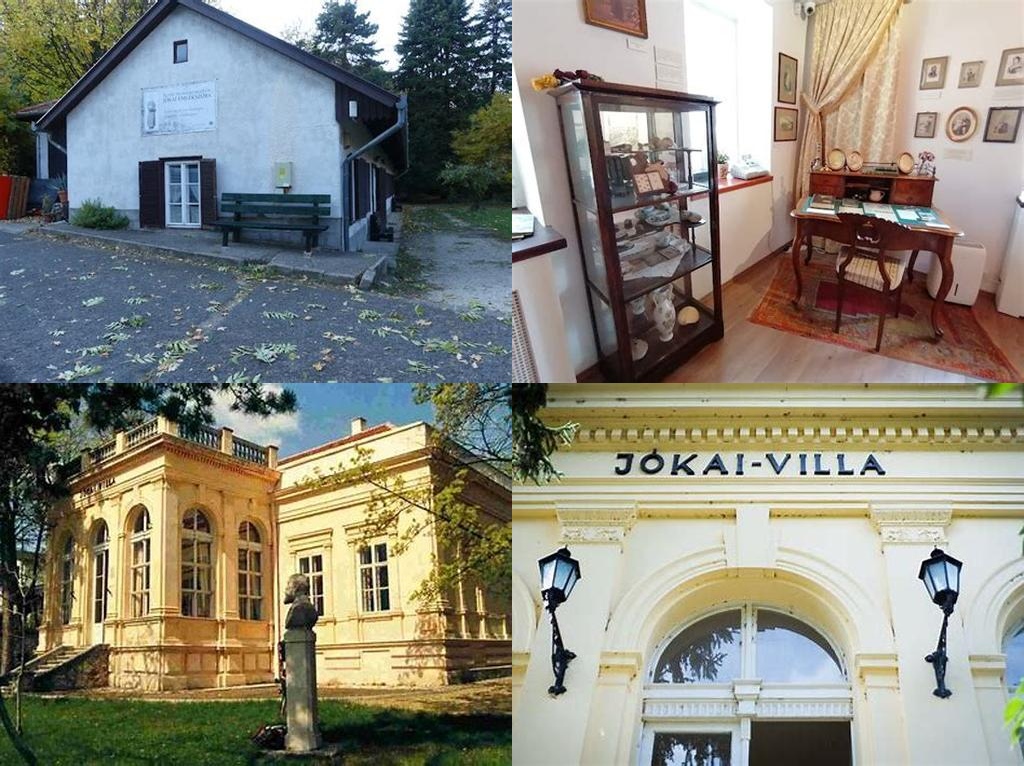
Jókai Mór Emlékszoba—which means the Mór Jókai Memorial Room—is much more than a commemorative corner; it’s an intimate window into Hungary’s literary past, nestled in the tranquil city of Komárom where the Danube’s waters gently carve the border. If you are someone who appreciates exploring not just sights, but also stories, you’ll find a visit to this memorial room quietly rewarding. There’s no flashy grandeur here, no impersonality—just the honest, enduring spirit of a man whose pen defined a nation’s literature.
As you step into the old, classical building that houses the memorial, you feel a soft hush, as if breathing with the memories that linger in the air. Mór Jókai, born in 1825, remains one of Hungary’s most beloved novelists, celebrated for his ability to render history, humor, and human frailty into tales that still captivate readers. If Hungarian wasn’t your first language, you might have brushed past his name in lists alongside Sándor Petőfi or József Eötvös. But in Hungary, his works and legacy are as much a thread in the nation’s cultural fabric as the Danube is in the land’s landscape.
The memorial room stands inside the house where the writer spent many of his formative years. This home was filled with conversations, family events, and the youthful daydreams that would one day become the multi-layered epics for which Jókai became legendary. The setting itself feels unaltered by time. Inside, glass cabinets hold the paraphernalia of real, complicated lives: a delicate writing desk scattered with old inkwells and yellowed pages, reading glasses that suggest a life spent squinting at words, and the curious juxtaposition of formal portraits and more candid family photographs. Each object seems to murmur with memory.
There’s a simple delight in wandering through the displays at your own pace. The memorial isn’t sprawling—there’s no risk of getting lost. Instead, you’ll find yourself pausing in front of humble relics: a battered travel trunk; faded letters between Jókai and his contemporaries. You get a sense not just of Mór Jókai the public figure, but of the person who delighted in gardening, who found solace in his friendships, who endured personal losses, and who concocted philosophical debates that resound in his novels.
A highlight for many is seeing early editions of some of Jókai’s most famous works. Hungary’s tumultuous nineteenth century springs to life in cases of leather-bound tomes. If you are curious about how literature and revolution have always intersected in Hungarian identity, you might linger over documents connected to the 1848 Revolution, in which Jókai played a significant role—not only as a chronicler, but also as an active participant. Contextual panels (helpfully offered in English and Hungarian) explain how his words were as vital for rallying national sentiment as banners and barricades ever could be.
The attraction gains an extra layer of poignancy thanks to the knowledge that Jókai wrote prolifically even as Europe and Hungary changed around him. He outlived two empires, numerous fads, and the rise and fall of literary movements. His resilience is felt in the carefully preserved everyday items—shabby slippers, a staff, a faded hat—a reminder that great art grows out of ordinary lives.
Because this is Komárom, not Budapest, there’s a lack of crowds and of that harried museum pace. Staff members, often local enthusiasts or even retired literature teachers, greet you with a quiet pride. Sometimes you might strike up a conversation about modern Hungarian writers, or get recommendations for which of Jókai’s novels to dip into next. Stories intertwine—yours and his—within these rooms.
Walking out, you’ll most likely find yourself glancing at the Danube with new eyes—or discovering a desire to read at least one of Mór Jókai’s sprawling, witty, cleverly layered novels. In this quiet little memorial room, history resumes its role as a living thing: not distant, not dusty, but close, warm, and unexpectedly personal. If you find yourself in Komárom, and care even a little about how stories shape who we are, don’t pass by the Jókai Mór Emlékszoba—pause, listen, and step into the pages of another century.





